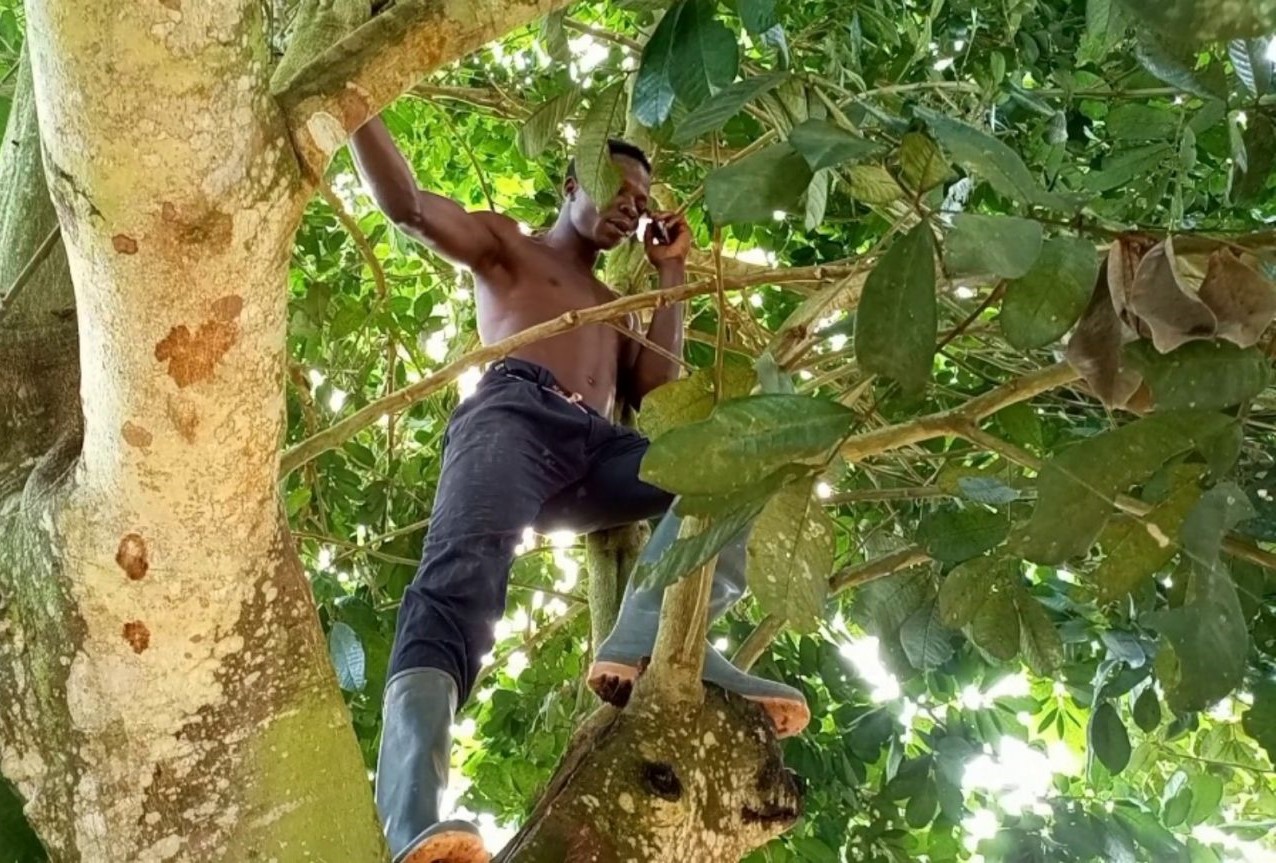Residents of Wawasua in Sunyani climb trees to make calls

In Wawasua, a predominantly rural community in the Sunyani East Municipality of the Bono Region, unreliable telecommunication network coverage has become a significant challenge.
Residents find themselves resorting to climbing hills or trees to make phone calls, highlighting the critical infrastructural issues faced by many rural areas in Ghana.
The lack of network coverage profoundly affects daily life, from personal communication to emergency services and business transactions.
For the people of Wawasua, climbing trees has become a routine activity to stay connected with the outside world.
This lack of stable network reception has left the community feeling isolated and excluded from the government’s digitalisation initiatives.
The impact extends beyond personal communication, causing significant harm to local businesses.
The community has voiced its concerns, emphasising the difficulties posed by poor connectivity.
Essential service providers, such as nurses and teachers, are reluctant to accept positions in the area due to the connectivity challenges, further hindering the community’s development.
Frustration among residents has reached a boiling point, with some vowing not to vote in the 2024 general elections if their issues remain unresolved.
They have urgently appealed to telecommunication companies to expand their network coverage, as the lack of reliable mobile connectivity is severely impacting their daily lives and economic activities.
The plight of Wawasua serves as a stark reminder of the digital divide in Ghana, underscoring the urgent need for equitable access to telecommunications for all citizens.
A resident in an interview with Channel One TV said “The network is our major problem and is affecting us a lot.”
Another resident said: “I have to go to Sunyani before I can do business online.”
“It’s difficult transacting business in this village, we’re pleading with the government to come to our aid.
“We climb trees before we’re able to make phone calls, or we climb a storey building, but the owner of the storey building has warned us to stay off his property. If the government fails to resolve our network issue, we will not vote in this election.”
The Assembly, however, assured that efforts are underway to get the authorities to fix the situation.


